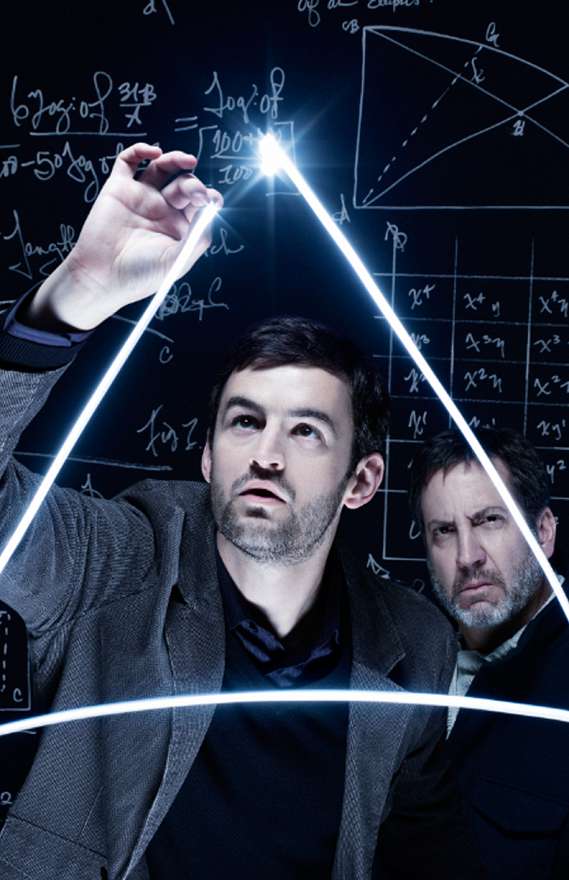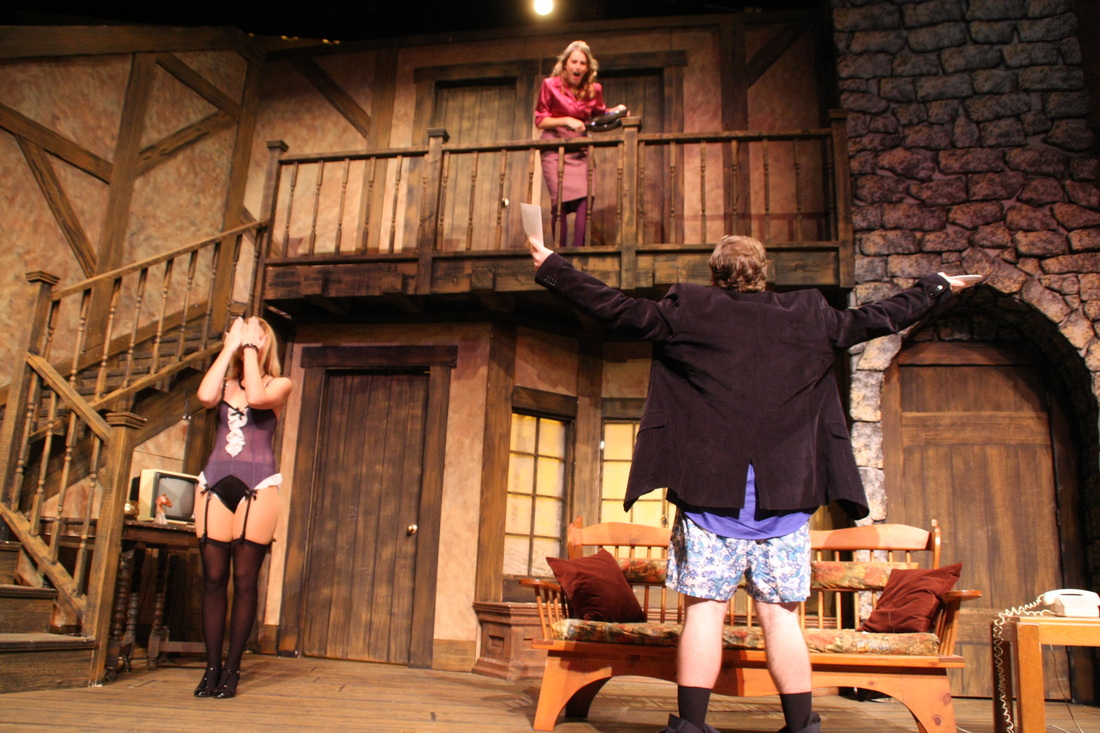December is finally here, and the temperature has gone way downhill. Soon, we’ll be heading into the heart of winter, so for my last blog post of the semester, I decided to do a winter romance: Almost, Maine.
In the notes at the beginning of the play,the author, John Cariani writes, “Please keep in mind that ‘cute’ will kill this play. Almost Maine is inherently sweet. There is no need to sentimentalize the material. Just… let it be what it is: a play about real people who are really, truly, honestly dealing with the toughest thing there is to deal with in life: love. If you do the play don’t forget how much the people of Almost, Maine are hurting. Honor the ache, play the pain (keep most of it covered), and don’t forget that Almost, Maine is a comedy. Sadness is the funniest thing in the world.”
Well, “Almost, Maine is inherently sweet” just might be the understatement of the century, even if statements like “sadness is the funniest thing in the world,’ would lead you to believe otherwise. It takes place in a small town called Almost in northern--you guessed it--Maine. It’s a series of eight “episodes,” vignettes that each feature two or three different characters. Sometimes a character will mention someone from a different episode, and it’s clear that all of the characters in this world are connected, but each vignette is it’s own story, focusing on a specific and unique relationship. They all take take place at the same time, about nine o’clock on a “cold, moonless Friday night,” under the stunning lights of the Aurora Borealis. And each has a unique, slightly magical element.
And yeah, they’re really cute. You can’t watch the show without saying “aww.” It’s just not possible. Ron Swanson would say “aww” if he saw it. It’s that adorable. But it’s not saccharine. It doesn’t make you feel uncomfortable or want to vomit. It’s not fake. These stories are so real, and heartfelt, and often times quite awkward that you can’t help but smile. They’re not perfect. They don’t all have happy endings. But they’re beautiful. In one, a woman shows up at her boyfriend’s house in the middle of the night to return all the love he gave her over the course of their eleven-year relationship. She’s angry and wants to end it because she feels like their relationship isn’t going anywhere. She carries in huge bags, filled with enormous amounts of love. She demands that he return all the love she gave him, too. He brings out a tiny little bag. She’s shocked and angry, insistent that it can’t be all the love she gave him. Until, that is, she sees what’s inside. He explains to her that he managed to fit all her love into the ring, which is “a lot bigger than it looks.” That’s one of the stories that does have a happy ending.
I’m not so sure I agree with what Cariani says about sadness. It’s true that Almost Maine is hilarious, and a lot of those jokes are at someone’s expense, often about very painful things. But if that were all there was to the show, I think Almost, Maine would be at best an OK, moderately funny play. I’ve seen scenes from it played with the honesty and authentic emotion that Cariani requests. The resulting euphoria is what makes the play wonderful. Sadness makes it good; joy makes it great. At least, that’s what I think. You can decide for yourself in a matter of months--it’s the Spring show here at ETHS.
In the notes at the beginning of the play,the author, John Cariani writes, “Please keep in mind that ‘cute’ will kill this play. Almost Maine is inherently sweet. There is no need to sentimentalize the material. Just… let it be what it is: a play about real people who are really, truly, honestly dealing with the toughest thing there is to deal with in life: love. If you do the play don’t forget how much the people of Almost, Maine are hurting. Honor the ache, play the pain (keep most of it covered), and don’t forget that Almost, Maine is a comedy. Sadness is the funniest thing in the world.”
Well, “Almost, Maine is inherently sweet” just might be the understatement of the century, even if statements like “sadness is the funniest thing in the world,’ would lead you to believe otherwise. It takes place in a small town called Almost in northern--you guessed it--Maine. It’s a series of eight “episodes,” vignettes that each feature two or three different characters. Sometimes a character will mention someone from a different episode, and it’s clear that all of the characters in this world are connected, but each vignette is it’s own story, focusing on a specific and unique relationship. They all take take place at the same time, about nine o’clock on a “cold, moonless Friday night,” under the stunning lights of the Aurora Borealis. And each has a unique, slightly magical element.
And yeah, they’re really cute. You can’t watch the show without saying “aww.” It’s just not possible. Ron Swanson would say “aww” if he saw it. It’s that adorable. But it’s not saccharine. It doesn’t make you feel uncomfortable or want to vomit. It’s not fake. These stories are so real, and heartfelt, and often times quite awkward that you can’t help but smile. They’re not perfect. They don’t all have happy endings. But they’re beautiful. In one, a woman shows up at her boyfriend’s house in the middle of the night to return all the love he gave her over the course of their eleven-year relationship. She’s angry and wants to end it because she feels like their relationship isn’t going anywhere. She carries in huge bags, filled with enormous amounts of love. She demands that he return all the love she gave him, too. He brings out a tiny little bag. She’s shocked and angry, insistent that it can’t be all the love she gave him. Until, that is, she sees what’s inside. He explains to her that he managed to fit all her love into the ring, which is “a lot bigger than it looks.” That’s one of the stories that does have a happy ending.
I’m not so sure I agree with what Cariani says about sadness. It’s true that Almost Maine is hilarious, and a lot of those jokes are at someone’s expense, often about very painful things. But if that were all there was to the show, I think Almost, Maine would be at best an OK, moderately funny play. I’ve seen scenes from it played with the honesty and authentic emotion that Cariani requests. The resulting euphoria is what makes the play wonderful. Sadness makes it good; joy makes it great. At least, that’s what I think. You can decide for yourself in a matter of months--it’s the Spring show here at ETHS.







